What brands need to know about creating content and promotions during the Paris 2024 Olympic Games
Published Friday, 09 August 2024.
WADA’s interim Cottier Report and a World Aquatics audit – What next with the Shijiazhuang 23?
Published Thursday, 25 July 2024.
Sport Disputes And Disciplinary Proceedings – Annual Review 2023/24
Published Monday, 17 June 2024.
The Shijiazhuang 23 (Part 2) – Why didn't WADA challenge CHINADA’s decision? And should they have done?
Published Friday, 31 May 2024.
Navigating the IOC’s social media guidelines for Paris 2024 – What athletes can and can’t do
Published Friday, 05 April 2024.
The ITA publishes National Olympic Committee (NOC) Clean Sport Education Guide for the Olympic Games Paris 2024
ENSURING ATHLETES AND THEIR ENTOURAGE ARE EQUIPPED WITH THE NECESSARY KNOWLEDGE TO SAFEGUARD THEMSELVES AGAINST DOPING IS PARAMOUNT. THE NOC CLEAN SPORT EDUCATION GUIDE FOR THE OLYMPIC GAMES PARIS 2024 IS A RESOURCE CRAFTED BY THE INTERNATIONAL TESTING AGENCY (ITA) IN PARTNERSHIP WITH THE INTERNATIONAL OLYMPIC COMMITTEE (IOC) AND WITH THE SUPPORT OF THE WORLD ANTI-DOPING AGENCY (WADA). IT HELPS NATIONAL OLYMPIC COMMITTEES (NOCS) PARTICIPATING IN THE UPCOMING OLYMPIC GAMES TO PROVIDE CLEAN SPORT EDUCATION FOR THEIR ATHLETES AND ATHLETE SUPPORT PERSONNEL (ASP) IN PREPARATION FOR THE EVENT.
NOCs have a specific responsibility around Major Events to educate athletes selected to participate in the Games and their ASP, in cooperation with the National Anti-Doping Organisation (NADO) and National Federations (NFs).
CLICK HERE TO DOWNLOAD THE NOC CLEAN SPORT EDUCATION GUIDE: A RESOURCE FOR THE OLYMPIC GAMES PARIS 2024
The WADA International Standard for Education promotes the principle that athletes and their ASP should be educated prior to arriving at a Major Games or event. Consistent clean sport education being imperative throughout an athlete’s career, the ITA’s NOC Clean Sport Education Guide for Paris 2024 supports this endeavour in the lead-up to the Games to educate and protect them. This is highlighted by Benjamin Cohen, ITA Director General: “Providing education resources and activities prior to the Games is an additional measure to ensure the well-being of all athletes involved, raise awareness of doping control procedures and provide a solid foundation for fair play for Paris 2024. We thank the IOC and WADA for their valuable support in this initiative and trust that the NOCs will find this guide useful in their preparation efforts.”
“As the body charged with delivering an independent anti-doping program in Paris on behalf of the IOC, it is imperative that we uphold the integrity of the event, not just through testing, but in all facets of clean sport.”
The guide was designed specifically for NOCs but is available to all organisations to support the principle that an athlete’s first experience with anti-doping should be through education rather than doping control.
Collaboration and cooperation are vital for clean sport and the ITA would like to thank Anti-Doping Denmark (ADD), the Azerbaijan National Antidoping Agency (AMADA), the Doping Authority Netherlands (Dopingautoriteit), Drug Free Sport New Zealand (DFSNZ), the Slovenia Anti-Doping Organisation (SLOADO), NADA Germany, the Japan Anti-Doping Agency (JADA) and the Southeast Asia Regional Anti-Doping Organisation (SEARADO) for their contributions to the Guidebook.
The ITA has also collaborated with WADA and the IOC to prepare a dedicated online education course for athletes and coaches aiming to attend the Olympic Games Paris 2024. The course is available on WADA’s Anti-Doping Education and Learning Platform (ADEL) and was launched in October 2023. The ITA also continues to offer all athletes, ASP, coaches and anyone interested freely accessible monthly webinars on various clean sport topics. A dedicated edition on the Paris 2024 anti-doping program will be held on 30 May 2024, the registration is already open and available here. The archive of previous editions of the webinars can be found here.
For any questions related to the ITA Paris 2024 NOC Clean Sport Education Guide or clean sport education, please contact our education team –
Sports Law In 2024 – Key Issues To Watch In UK & Ireland
Published Thursday, 04 January 2024.
Canadian Safe Sport Think Tank Report
Recently, a cross-section of Canadian sports people gathered for the Canadian Safe Sport Think Tank hosted by Global Athlete and Gymnasts for Change Canada to collectively address the country’s sporting crisis. Olympic and National Team athletes, advocates, survivors, sports administrators, coaches, and scholars engaged in a comprehensive examination of the Canadian sport system and collaborated to identify a pathway for its recovery and reconstruction.
For the last two years, the culture and operations of sport in Canada have been under the spotlight for its failures to adequately serve and protect all Canadians who participate in sport. Despite the heightened scrutiny from the parliamentary hearings conducted by Canadian Heritage and the Standing Committee on Status of Women, there has been limited action from both the Government of Canada and national sport leaders to acknowledge and act upon the national crisis to ensure sport in Canada becomes a safe, healthy, and equitable environment for all.
Recognising the lack of inaction, the Think Tank welcomed participants over two days and provided a safe space to offer open and honest feedback and perspectives on the Canadian sport system. Through multiple comprehensive roundtables, four pivotal themes emerged as playing a role in the shortcomings of Canada’s sport system:
Collusion and Conflicts of Interest: The Canadian sport system was discerned to be duplicitous by design, with a high level of collusion, where conflicts of interest and hidden affiliations protect the status quo and serve nationalist goals driven by the capitalization of sport and commercial exploitation of athletes. Power is limited to a few organizations such as Own the Podium (OTP) and the Canadian Olympic Committee (COC), leaving National Sport Organizations (NSOs) in a vulnerable position, where fear of losing funding dictates the operation of their sports.
Nationalist Goals of Sport within the Global System: With sport placed under Heritage Canada, the Canadian sport system has been set up to utilize 1% of sport population, the elite athletes, to promote Canada’s identity, culture, values, and legacy on global scale. This approach does not serve 99% of the sporting population who play sport for fun, health and socialization.
The Exploitation of Athletes: There is little to no protection of athletes in Canada. Established safe sport systems are failing the 1% population of elite athletes and neglecting the 99% of the sporting population. This is leaving athletes powerless, with almost no representation and little bargaining power. Sport has purposely self-regulated, with minimal oversight, to deny access to justice and remedy to athletes who are maltreated – facilitating and exacerbating the denial of their basic human rights.
National Inquiry: The Canadian sport system is failing the masses while simultaneously eroding high-performance sport. A national inquiry is necessary to understand what all Canadians need and want from sport and how sport can best become a tool for health, community, and development, instead of a propaganda tool for nationalist goals.
If the Canadian sport system continues to operate in this manner, the ability to create, serve, and maintain a healthy population and a healthy and successful sporting culture will be eroded.
These findings are further detailed in the report - click here to read.
IOC welcomes adoption of declaration on sports integrity by Council of Europe
The declaration recognises the work of the International Partnership Against Corruption in Sport (IPACS), and calls upon it to pursue its transversal and multi-stakeholder approach and enhance the implementation of the highest applicable standards aimed at combating corruption and promoting a culture of good governance in sport.
This declaration addresses the constantly evolving threats to sports integrity which undermine the potential of sport and its role as a social, educational, cultural and economic instrument.
It invites member states and sports organisations to “promote transparency, accountability, democracy and ethical behaviour in sport, including the establishment of robust governance systems, conflict-of-interest policies, whistle-blower protection mechanisms, effective investigation and prosecution of corruption, manipulation of competitions, violence and other infringements of human rights and the rule of law in the sport context.”
“The IOC and the Council of Europe have been working jointly for many years. We are therefore very pleased to see that this declaration recognises the many aspects of sports integrity that the IOC is promoting,” said IOC Chief Ethics and Compliance Officer Pâquerette Girard Zappelli. “Since its creation in 2017, IPACS has offered a unique and open platform for sports organisations and governments to develop pragmatic solutions to advance the fight against corruption in sport, while harnessing the expertise and experience of all actors.”
International Partnership Against Corruption in Sport
IPACS was launched at the IOC’s International Forum on Sports Integrity (IFSI) held in February 2017. It is a multi-stakeholder platform with the mission “to bring together international sports organisations, governments, inter-governmental organisations and other relevant stakeholders to strengthen and support efforts to eliminate corruption and promote a culture of good governance in and around sport”.
Interest in the Partnership has grown significantly since its creation, with its role and programmes discussed at numerous international events. For the first time, the United Nations General Assembly (UNGA) directly referred to IPACS in UNGA Resolution “Sport as an enabler of sustainable development” (A/77/L.28), adopted in December 2022.
IOC commissions for 2023: gender equality reaffirmed and new IOC Esports Commission announced
The potential to engage new audiences
Marking the latest step in supporting the development of virtual sports within the Olympic Movement, the establishment of the Esports Commission, chaired by IOC Member David Lappartient, who led the IOC Esports Liaison Group until the creation of the new Commission, underlines the IOC’s recognition of the tremendous potential that esports have to engage new audiences and provide new opportunities for athletes and fans alike.
Virtual and simulated sports have become an increasingly important part of the sporting landscape in recent years. The IOC has already been exploring this potential through initiatives such as the Olympic Esports Week, which was held for the first time in Singapore from 23 to 25 June, and the Olympic Esports Series, which invited both professional and amateur players from across the world to compete in virtual sports competitions.
“The IOC believes that virtual sports have the potential to complement and enhance the traditional Olympic sports, and that they can provide new opportunities for athletes and fans to participate in the Olympic Movement,” said President Bach. “We believe that virtual sports can help to promote the values of excellence, friendship and respect that are at the heart of the Olympic Games, and that they can inspire young people around the world to get involved in sports and to lead active and healthy lifestyles.”
Gender equality across IOC commissions
The IOC commissions play a vital role in the organisation’s work, focusing on specific subject areas and making recommendations to the IOC President, the Executive Board and the IOC Session. The composition of each commission includes IOC Members and a range of external experts.
President Bach once again maintained gender equality across the commission positions for 2023, highlighting the organisation’s efforts to foster gender equality and inclusion throughout the sports movement. The IOC continues to lead by example in regard to corporate citizenship, which was one of the key recommendations of its strategic roadmap, Olympic Agenda 2020+5.
Of the 583 positions on the IOC commissions, 287 are occupied by men and 296 by women. This represents a substantial increase in female representation since 2013, when only 20 per cent of commission positions were held by women.
Chairs ensure consistent approach
Almost all of the already existing IOC commissions will retain the same chairperson as last year, ensuring a consistent approach in fulfilling their mandates. 14 chairs of the 33 commissions are female, which makes it 42.42 per cent.
The only recent changes were the appointments of IOC Member Karl Stoss as Chair of the Future Host Commission for the Olympic Winter Games and of IOC Executive Board member Kristin Kloster as the Chair of the Coordination Commission for the XXV Olympic Winter Games Milano Cortina 2026, both replacing members who resigned from their position.
The President also appointed two additional independent members to the IOC Advisory Committee on Human Rights, to reinforce the expertise of the body in the field of business and human rights – namely Ms Rebeca Grynspan Mayufis and Ms Alexandra Guáqueta.
Ms Grynspan Mayufis is a Costa Rican economist who has been serving as Secretary General (SG) of the United Nations Conference on Trade and Development (UNCTAD) since 13 September 2021. Before that, she held various official positions in the UN system and in her country – including as Vice-President and Coordinating Minister of Social Affairs of Costa Rica (1994-1998).
Ms Guáqueta is a Colombian national who currently leads the global social impact and human rights function at a multinational consultancy firm that focuses on sustainability. Prior to her current role, Ms Guaqueta held various positions related to social standards – including as a member of the UN Working Group on Business and Human Rights (2011-2015).
The next IOC Commissions Week, which sees all the IOC commissions meet to discuss their specific subject areas, will be held remotely in November.
International Youth Day: the IOC and Allianz reveal global research findings on youth participation in sport
The USOPC, Team USA Athletes’ Commission, NGBC, and USADA Announce Transition to New Era ADR as Independent Arbitration Body
The Olympic Refuge Foundation is using sport to support the mental health needs of refugees and displaced people
A comparison of changes made by international sports federations to the regulation of transgender women athletes
Published Friday, 26 May 2023.
Can Russian Athletes Still Participate In The 2024 Paris Olympic Games?
Published Thursday, 06 April 2023.
Sport And Governance - Annual Review 2022/23
Published Thursday, 02 March 2023.
IOC launches Climate Action Awards
The Whyte Review Into British Gymnastics: Key Safeguarding Lessons For Sports Governing Bodies
Published Friday, 21 October 2022.
“There is no peace without solidarity” - IOC
Tokyo 2020 showed it is possible to keep a pandemic at bay’
IOC launches new long-term study of Olympians to protect athletes’ physical and mental health
UKAD significantly increases its sample reanalysis efforts during 2021/22
Eligibility Cases From The Beijing Olympic Winter Games
Published Wednesday, 09 February 2022.
Can Sports Federations Retroactively Cancel Olympic Qualifying Competitions? A Review Of Karlsson V FEI
Published Friday, 07 January 2022.
A silk’s story: what it’s like to experience and officiate at the Paris 2024 Olympics
Published Wednesday, 14 August 2024.
Olympic drone drama: How FIFA sanctioned the Canadian women’s football team for spying
Published Friday, 02 August 2024.
Draining the doping swamp: sanctioning an athlete’s entourage using the WADA Code
Published Monday, 08 July 2024.
The Shijiazhuang 23 (Part 3) – What comes next? And what are the lessons for future anti-doping investigations?
Published Friday, 31 May 2024.
The Shijiazhuang 23 (Part 1) – The Investigation: New York Times, ARD & USADA vs CHINADA & WADA
Published Friday, 31 May 2024.
Why it’s time for a centralised safeguarding regulator in UK Sport
Published Friday, 09 February 2024.
A guide to India’s key sports law issues in 2023/24
Published Monday, 08 January 2024.
Strict eligibility conditions in place as IOC EB approves Individual Neutral Athletes (AINs) for the Olympic Games Paris 2024
The Executive Board (EB) of the International Olympic Committee (IOC) has decided that Individual Neutral Athletes (AINs) who have qualified through the existing qualification systems of the International Federations (IFs) on the field of play will be declared eligible to compete at the Olympic Games Paris 2024 in accordance with the the conditions outlined below. Individual Neutral Athletes are athletes with a Russian or Belarusian passport. The strict eligibility conditions based on the recommendations issued by the IOC EB on 28 March 2023 for International Federations and international sports event organisers will be applied.
Like all the other athletes at the Olympic Games, the Individual Neutral Athletes will also have to comply with the rules and regulations applicable at the Olympic Games, including anti-doping.
Like all the other athletes, they will also have to sign the updated Conditions of Participation applicable for Paris 2024. This contains a commitment to respect the Olympic Charter, including “the peace mission of the Olympic Movement”. Please find an excerpt of the new form here.
The Individual Neutral Athletes will be invited by the IOC and their respective IFs. Only a very limited number of athletes will qualify through the existing qualification systems of the IFs. Among the 4,600 athletes from around the world who have qualified for Paris 2024 so far, there are only 11 Individual Neutral Athletes (eight with a Russian passport plus three with a Belarusian passport). In comparison, to date more than 60 Ukrainian athletes have qualified for Paris 2024. It is expected that the Ukrainian delegation is going to be around the same size as at the Olympic Games Tokyo 2020.
The strict eligibility conditions for Individual Neutral Athletes at Paris 2024 are the very same strict eligibility conditions under which they qualified, namely:
-
Qualified athletes with a Russian or Belarusian passport will be entered as, and compete as, Individual Neutral Athletes (“AINs”).
-
Teams of athletes with a Russian or Belarusian passport will not be considered.
-
Athletes who actively support the war will not be eligible to be entered or to compete. Support personnel who actively support the war will not be entered.
-
Athletes who are contracted to the Russian or Belarusian military or national security agencies will not be eligible to be entered or to compete. Support personnel who are contracted to the Russian or Belarusian military or national security agencies will not be entered.
-
Any such Individual Neutral Athlete, like all the other participating athletes, will have to meet all anti-doping requirements applicable to them in the lead-up to and at the Olympic Games Paris 2024, and particularly those set out in the anti-doping rules of the IFs.
-
The sanctions against those responsible for the war, the Russian and Belarusian states and governments, remain in place for the Olympic Games Paris 2024. This means, in particular, that:
- No flag, anthem, colours or any other identifications whatsoever of Russia or Belarus will be displayed at the Olympic Games Paris 2024 in any official venue or any official function.
- No Russian or Belarusian government or state officials will be invited to or accredited for the Olympic Games Paris 2024.
The practical application of today’s IOC EB decision can be found in the “Principles Relating to the Implementation of the Participation for Individual Neutral Athletes and their Support Personnel with a Russian or Belarusian Passport at the Olympic Games Paris 2024”, which is a separate document and can be found here. It says amongst other things that the IOC will seek an independent evaluation of the eligibility of each qualified AIN proposed by the IF, and their support personnel.
The considerations of the IOC EB included, amongst others:
- The call by the International Federations at the Olympic Summit on 5 December 2023 to take such a decision as soon as possible (please see here the communiqué of the Olympic Summit). The call by the IFs was supported by the Association of National Olympic Committees (ANOC), the Continental Associations of National Olympic Committees (NOCs) and the NOCs present.
- The view of the overwhelming majority of athletes not to punish fellow athletes for the actions of their government.
- The fact that all these calls and views were reaffirmed and further strengthened in consultation calls with the stakeholders of the Olympic Movement this week: the IOC Members, the network of athlete representatives, the International Federations and the National Olympic Committees.
- Olympic Truce Resolution A/RES/78/10 by the United Nations (UN) for the Olympic and Paralympic Games Paris 2024, which supports the autonomy of sport and the political neutrality of the IOC, as enshrined in the Olympic Charter. It was approved by an overwhelming majority of 118 Member States, with only two countries abstaining (the Russian Federation and the Syrian Arabic Republic) and no votes against. (Please find more information here)
- The G20 New Delhi Leaders’ Declaration, which said in September: “We also look forward to the Paris Olympic and Paralympic Games in 2024 as a symbol of peace, dialogue amongst nations and inclusivity, with participation of all.” (Please find more information here)
- The declaration by the Non-Aligned Movement, comprising 120 UN Member States, which said: “The participation of athletes from all 206 National Olympic Committees in Paris 2024 Olympic and Paralympic Games would be a strong symbol of unity of humanity.” (Please find more information here)
- The concerns of two Special Rapporteurs from the UN Human Rights Council, requesting that the IOC ensure the “non-discrimination of any athlete on the basis of their nationality”.
- The reassurances at the Olympic Summit by the President of the World Anti-Doping Agency (WADA) and the Chair of the International Testing Agency (ITA) that doping controls in Russia continue. This year, more than 10,500 samples from Russian athletes in and out of competition have been collected despite the extremely limited number of AINs taking part in international competitions. This means that Russia remains among the top-ten nations being tested. In addition, it was indicated that the ITA had conducted well over 400 out-of-competition tests on athletes with Russian nationality in 2023. Both blood and urine samples are transported with a strict chain of custody to multiple laboratories outside the country. Any adverse analytical findings are actioned and monitored by WADA.
- The fact that the ITA’s intelligence-led Pre-Games Testing Anti-Doping Programme, which targets athletes, sports and countries with the highest risks and athletes who are likely to qualify for Paris 2024, includes Russian athletes.
Despite the suspension of the Russian Olympic Committee (ROC), the IOC EB did not change its recommendations concerning the participation of AINs under these strict conditions. The protection of the rights of individual athletes to participate in competitions despite the suspension of their NOC is a well-established practice, respecting human rights, and has been implemented across a number of suspended NOCs during past Olympic Games. The ROC had to be suspended because of its unilateral decision to include as its members the regional sports organisations under the authority of the NOC of Ukraine, which is a breach of the Olympic Charter because it violates the territorial integrity of the NOC of Ukraine.
The IOC EB also reaffirmed again the steadfast commitment of the entire Olympic Movement to help Ukrainian athletes in every way possible, in order to see a strong team from the National Olympic Committee of Ukraine at the Olympic Games Paris 2024 and the Olympic Winter Games Milano Cortina 2026. In order to achieve this, the IOC has tripled its Solidarity Fund for the NOC of Ukraine to USD 7.5 million.
At least 3,000 Ukrainian athletes and other members of the Olympic community of Ukraine have benefitted from the IOC Solidarity Fund through the NOC of Ukraine over the past 12 months, and from direct assistance from other Olympic Movement stakeholders, including the IFs and the NOCs. These efforts have taken the form of financial and logistical support, in order to ensure that Ukrainian athletes can continue to train and take part in competitions by providing travel support, training facilities, accommodation, equipment and uniforms, amongst other items.
IOC President at the second ANOCA Gender Equality Forum: “Everyone has a role to play to empower women in sport”
Nearly 200 key decision-makers from across the Olympic Movement in Africa gathered in Cabo Verde this week to continue working together towards gender equality in and through sport. The theme of the forum, “From the Boardroom to the Playing Field”, reiterated the need for the Olympic Movement to address gender equality in all areas of its activities and resulted in 10 key commitments to action.
Driving equality at all levels
Next summer’s Olympic Games Paris 2024 will be the first Games with full gender equality on the field of play. The International Olympic Committee (IOC) has distributed the quota places equally: 50 per cent for women and 50 per cent for men. The same principle of gender equality will be fulfilled two years later at the first Olympic sports event to be held on the continent of Africa: the Youth Olympic Games Dakar 2026. These Youth Olympic Games were also a topic discussed at the forum, with participants being urged to look at the impact and opportunities of this event being held in Africa, with the aim of engaging more young women and girls in sport.
Off the field of play, meanwhile, the IOC’s own membership is growing more gender equal, with more than 40 per cent of IOC Members now female – and 50 per cent of the positions in the IOC commissions occupied by women, a landmark reached in 2022. However, as the IOC is the first to acknowledge, there is still much work to be done to bring about gender equality across the wider Olympic Movement – especially off the field of play.
“Everyone has a role to play”
IOC President Thomas Bach addressed the forum through a video message, with additional keynote addresses from Dr Phumzile Mlambo-Ngcuka, former Executive Director of UN Women and now Chair of the IOC’s Advisory Committee on Human Rights; and IOC Member HRH Prince Faisal Al Hussein, who serves as both the Chair of the Association of National Olympic Committees (ANOC)’s Gender Equity Commission and the Vice-Chair of the IOC’s Gender Equality, Diversity and Inclusion Commission.
In his video message, President Bach praised the progress that the Association of National Olympic Committees of Africa (ANOCA) has made so far – while also emphasising that the entire Olympic Movement needs to work together to narrow the gender gap across sport.
“Only 26 per cent of NOC [National Olympic Committee] leadership positions are occupied by women. Among the IFs [International Federations], only four are led by a woman, and just eight IFs have a female secretary general. We also see this gender gap in the athletes’ entourage, where the number of women holding leadership roles remains unacceptably low.
“If we truly want to promote gender equality and empower women in sport, not only as athletes, but also as coaches, officials and leaders, then everyone has a role to play – the IFs, the NOCs, the athletes and all the other partners and stakeholders.”
Commitments to action
Following two days of active discussions, the forum participants presented their “commitments to action” as a roadmap to work together for gender equality in Africa. These commitments comprise a range of actions and awareness-raising around the need for gender equality from grassroots level to elite sport, including:
- Increasing female athlete participation from grassroots to elite levels
- Implementing the gender balance quotas for governing bodies, with a minimum female representation level of 30 per cent, as outlined in the ANOCA statutes
- Increasing women’s capacity and representation in all categories (i.e. athletes’ entourage, administrators, etc.) from grassroots to elite levels
- Implementing and disseminating the IOC Portrayal Guidelines across media and sports stakeholders
- Establishing and implementing measures for a safe sport environment for all, especially groups that are at risk.
President Bach pointed out the importance of such actions in the efforts to advance gender equality: “Gender equality does not just magically happen. To continue to advance, we need deliberate policies and institutional commitment. This is why I am very pleased to see how ANOCA, through its Gender Equality Commission, is taking important steps. With your strong focus on promoting sport across Africa at the zone level, you are demonstrating the importance of a bottom-up approach – also when it comes to gender equality.”
IOC safeguarding workshop
On the sidelines of the forum, the IOC also hosted a safeguarding workshop for the NOCs. The workshop, held as part of the IOC’s objective to help NOCs develop their own policies and programmes to prevent harassment and abuse, focused on understanding the local challenges that are faced in terms of strengthening safe sport, and on discussing the local solutions available in the various zones of Africa.
Statement from United States of America Olympic Figure Skater Vincent Zhou
It has been 595 days since my teammates and I earned medals at the Olympics. We still have not received them.
You may remember what happened. Representing Team USA, we placed second in the Figure Skating Team Event at the 2022 Winter Olympics. We were bested only by the Russian team, with Japan finishing third and Canada fourth. On the day that we were scheduled to receive our medals, the International Olympic Committee (IOC) cancelled the ceremony due to a “situation” that required a “legal consultation.” The IOC assured us that they would do their “utmost to make sure it [was] resolved as quickly as possible.”
The “situation’s” focal point was Russian skater Kamila Valieva’s positive drug test. Her urine sample, collected more than six weeks earlier but only just analyzed, contained the prohibited substance trimetazidine. The positive test would ordinarily have nullified Team Russia’s results immediately, and the awards ceremony could have proceeded as planned, with us, the Japanese team and the Canadian team receiving medals. However, the Russian Disciplinary Anti-Doping Commission (DADC), supported by the Court of Arbitration for Sport (CAS), decided that different anti-doping rules may apply to Valieva because she was only 15 years old at the time of the competition. So, for the first time in modern Olympic history, no medals were awarded.
While there are significant economic costs associated with not receiving an Olympic medal (sponsors love medals), the real harm has come from the way the “situation” has been handled by sport administrators.
In the 19 months since we took the ice in Beijing, my teammates and I have heard almost nothing from the officials handling the case, and we have no reason to believe that our interests are being adequately represented. This week, a hearing is scheduled at CAS that will pit the IOC, the World Anti-Doping Agency (WADA), and the Russian Anti-Doping Agency (RUSADA) against Valieva and the Russian DADC. The idea that such a hearing will serve the interests of clean athletes is absurd - the Russian “Anti-Doping” Agency has been facilitating Russian doping for over a decade. The IOC, for its part, has repeatedly refused to hold Russia accountable for a state-sponsored doping program involving more than 1,000 athletes. WADA, which is controlled by the IOC through a governing agreement with public authorities, reinstated the Russian Anti-Doping Agency in 2018 despite the agency’s refusal to turn over data detailing the extent of Russian doping. And the “court” in next week’s hearing, CAS, which is an arm of the IOC (its president is the IOC vice-president), has repeatedly sided with Russia – first in overturning sanctions of Russian athletes and then in watering down subsequent sanctions on Russia and RUSADA. Who in this panoply of actors represents the interests of me and my teammates, and furthermore, the interests of the broader sporting community?
We asked to be allowed to observe the upcoming hearing. In response, we were told that CAS hearings are confidential – closed even to those of us directly affected by the proceedings. We were told that either of the involved parties could request a public hearing, but that neither did. For that reason, the proceedings will happen behind closed doors.
An open and transparent hearing would go a long way towards helping athletes understand any decision that is rendered. Transparency would build confidence in a global anti-doping system that has lost the trust of its most important stakeholders: athletes. In contrast, asking the parties themselves to decide whether the hearing will be public is akin to asking them whether their actions should be scrutinized by outsiders. Unsurprisingly, they chose to act with impunity and to avoid public accountability.
The situation we found ourselves in at the Beijing Games and the painful process that we have endured since are a direct result of decisions made by the IOC, WADA, and CAS. The global sport administrators allowed Russian athletes to compete in the past four Olympics, including Beijing, despite the country’s state-sponsored doping program. The program is widely known to have corrupted multiple Olympic Games and defrauded thousands of athletes. Also, the Russian government has obstructed the pursuit of justice by manipulating data, destroying laboratories, and going so far as to murder whistleblowers in order to undermine investigations. And yet, the Russian team has not been excluded from a single Olympic Games.
Valieva’s positive drug test is not an isolated incident. My teammates and I are aware of widespread doping by other Russian skaters – and this, unfortunately, should surprise no one, given that a non-compliant anti-doping organization is still tasked with ensuring the integrity of sport inside Russia. Valieva and her teammates would never have been placed in this position if the IOC, WADA, and CAS had done their jobs and banned Russia from global sport. But, because of the inaction of sport administrators, Russia has never been incentivized to reform. Athletes both inside and outside of Russia have borne the cost.
As my team’s empty medal boxes show, the global anti-doping system is failing athletes. The revered elitism of the Olympics is dependent upon the principles of clean sport and fair competition. Yet, the governing bodies that are tasked to observe and enforce these principles continuously act against their supposed missions and fail to act on behalf of the people for whom they exist to serve: the athletes. Whenever finally held, the awards ceremony for the Beijing 2022 Figure Skating Team Event will be a symbol of the gross failures of the IOC, CAS, RUSADA, and other global sporting administrators. Justice delayed is justice denied, and my teammates and I will never get back the chance to stand before the world to celebrate a lifetime's worth of hard work culminating in a career-defining achievement. We have been forever prevented from experiencing the moment that every athlete dreams of – and ultimately, the organizations assumed to protect and create such moments are instead responsible for the emptiness of our success.
Sports marketing and sponsorships in Japan - Legal issues & key takeaways
Published Friday, 18 August 2023.
IOC marks Safe Sport Day with two new athlete safeguarding courses
Thomas Bach: “We are standing together in the interest of the athletes. They bring our values to life”
Doping-free competitions and fair victories are the true values of young Olympians
IOC welcomes G7 Leaders’ support for the autonomy of sport
Sports Disputes And Disciplinary Procedures - Annual Review 2022/23
Published Thursday, 02 March 2023.
Cooperation In Staging Major Sports Events - Why Is Compromise Becoming So Tricky?
Published Friday, 06 January 2023.
WADA publishes Independent Observer team report for the 2022 Beijing Paralympic Winter Games
Weightlifting Athlete Rene Navarrete Accepts Sanction for Anti-Doping Rule Violation
Olympic Wrestling Athlete Ellis Coleman Receives 24-Month Sanction for Anti-Doping Rule Violation
IOC launches new long-term study of Olympians to protect athletes’ physical and mental health
IOC President and President of the Swiss Confederation meet in Lausanne at The Olympic Museum
The CCES and COC Announce Pilot Project and Education Initiative to Tackle Competition Manipulation
Key Amendments To The Hungarian Sports Act - Major Events, Anti-Doping & Agent Regulation
Published Friday, 04 February 2022.
Sports Law in 2022 – Key issues to watch in UK & Ireland
Published Tuesday, 28 December 2021.



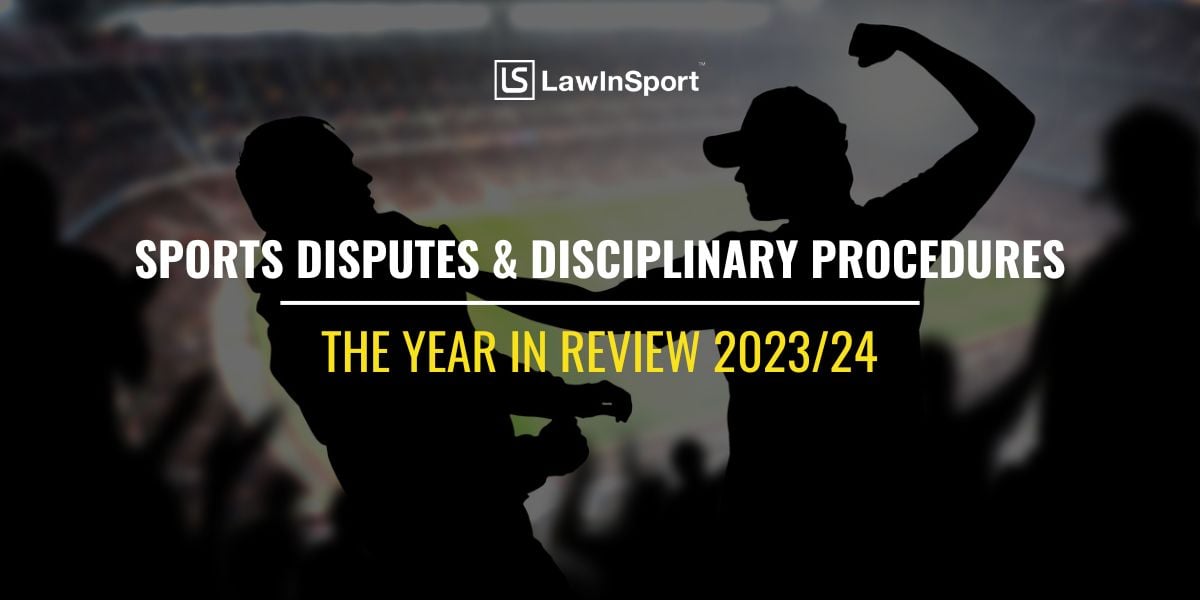
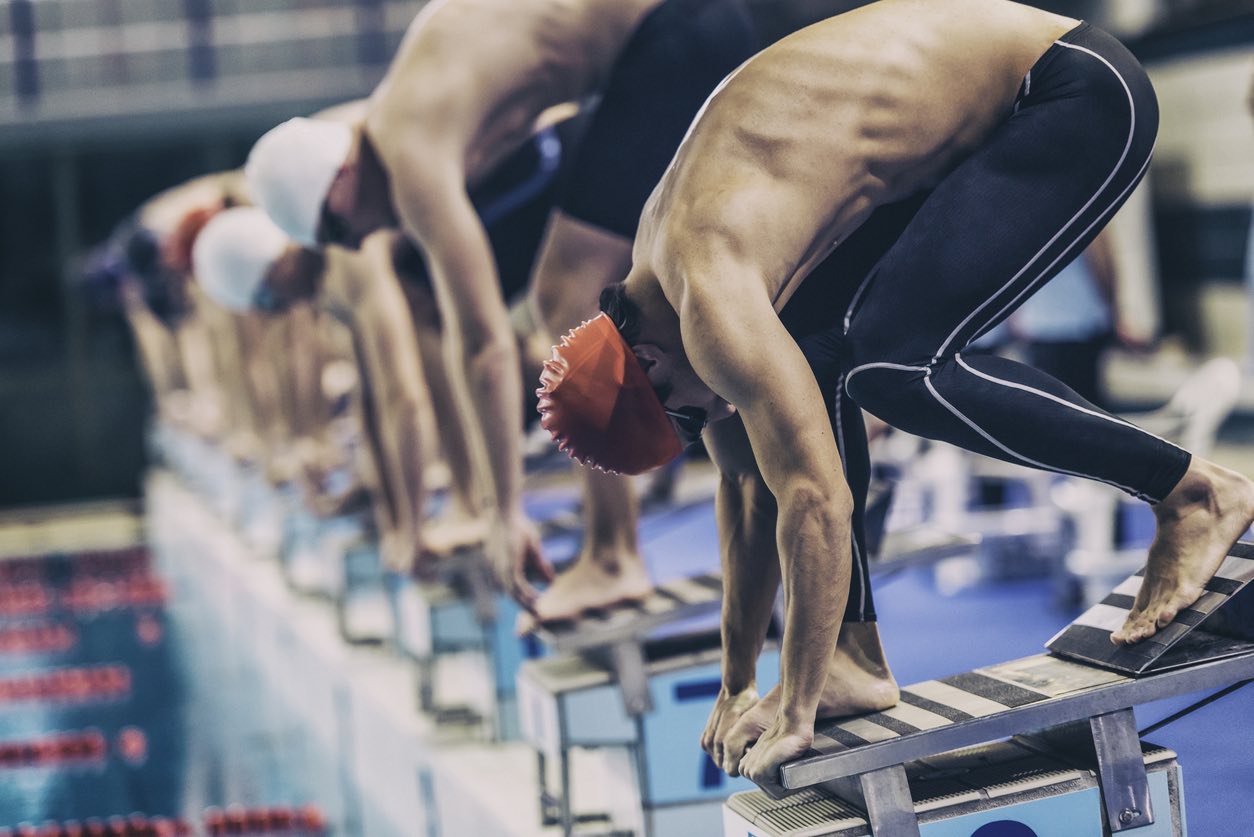
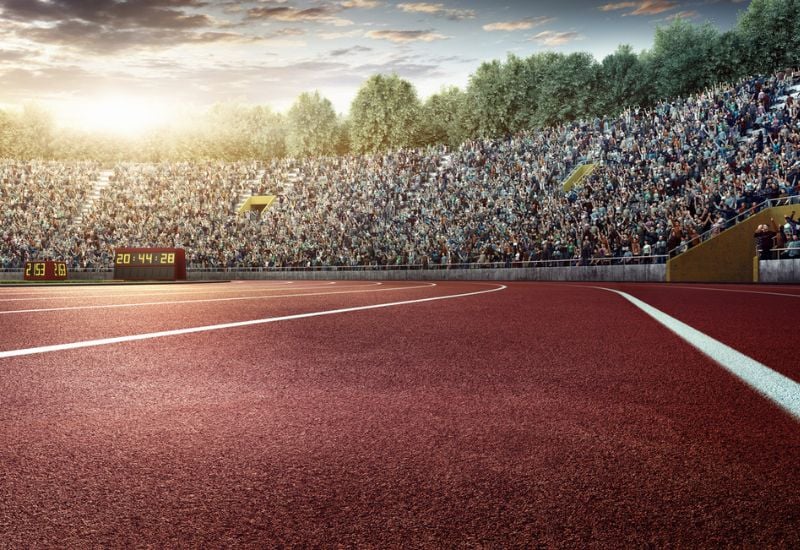

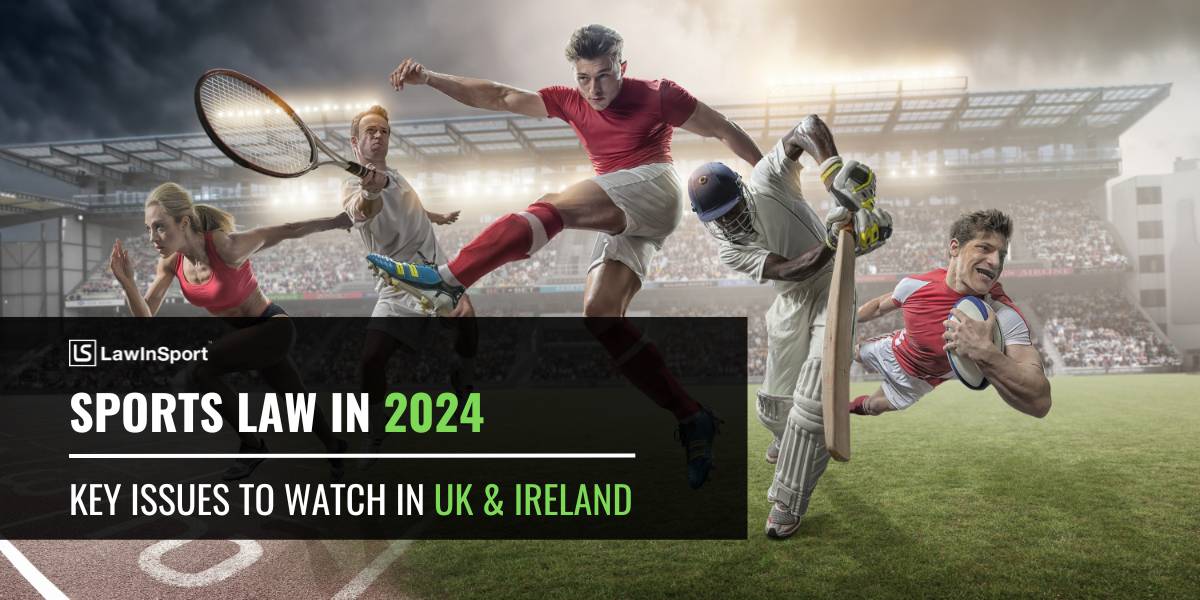
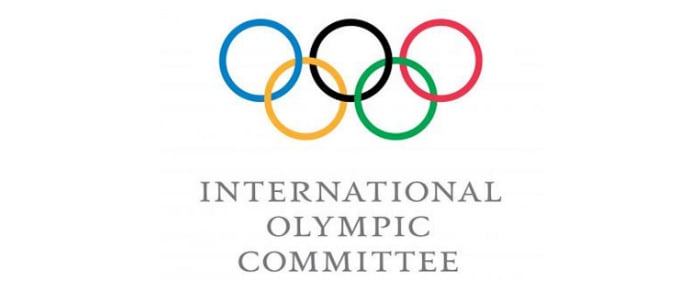
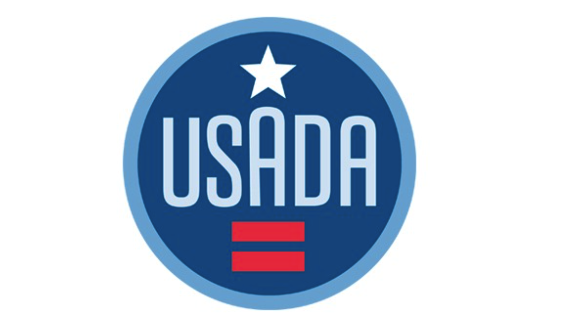

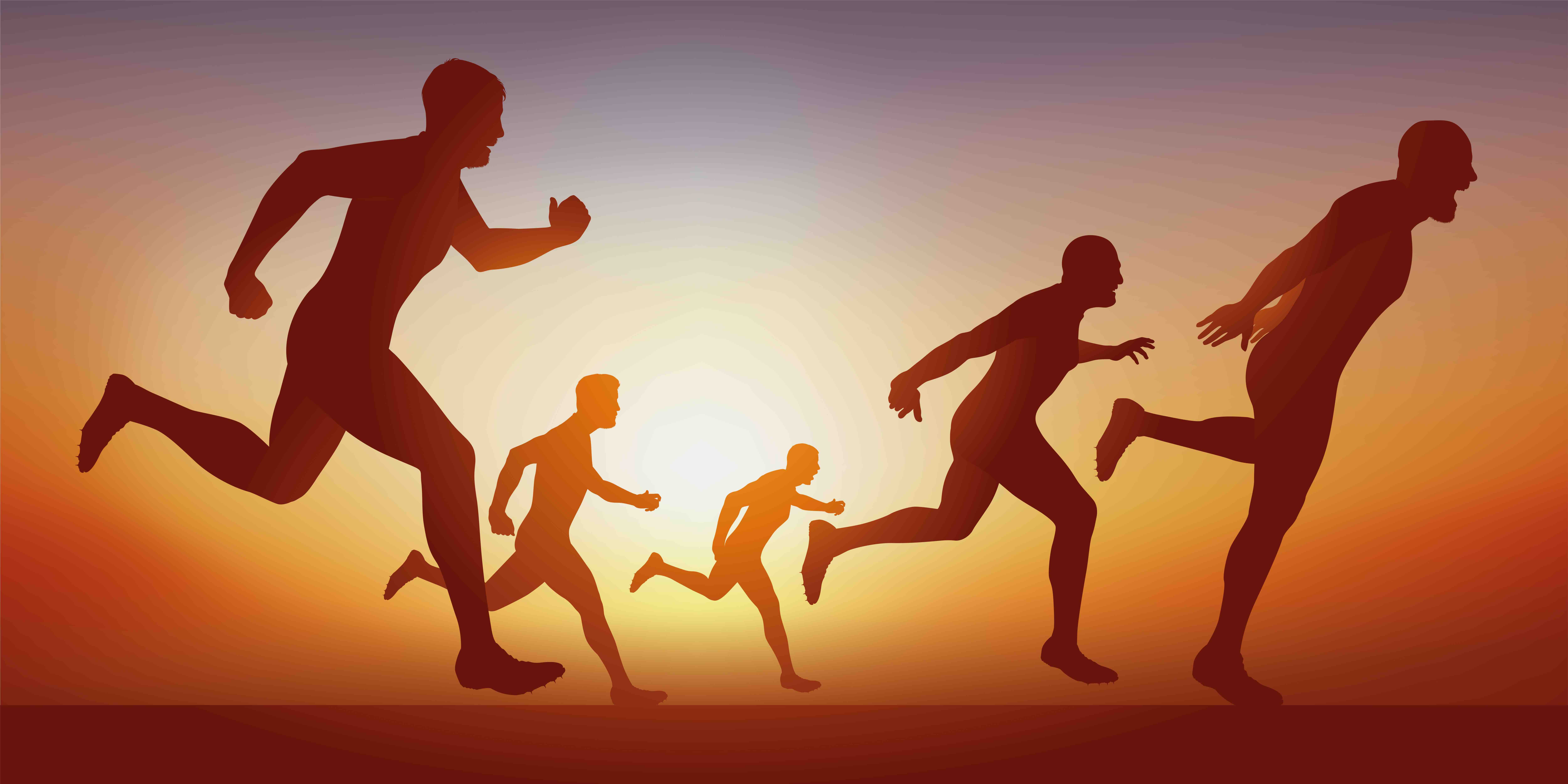
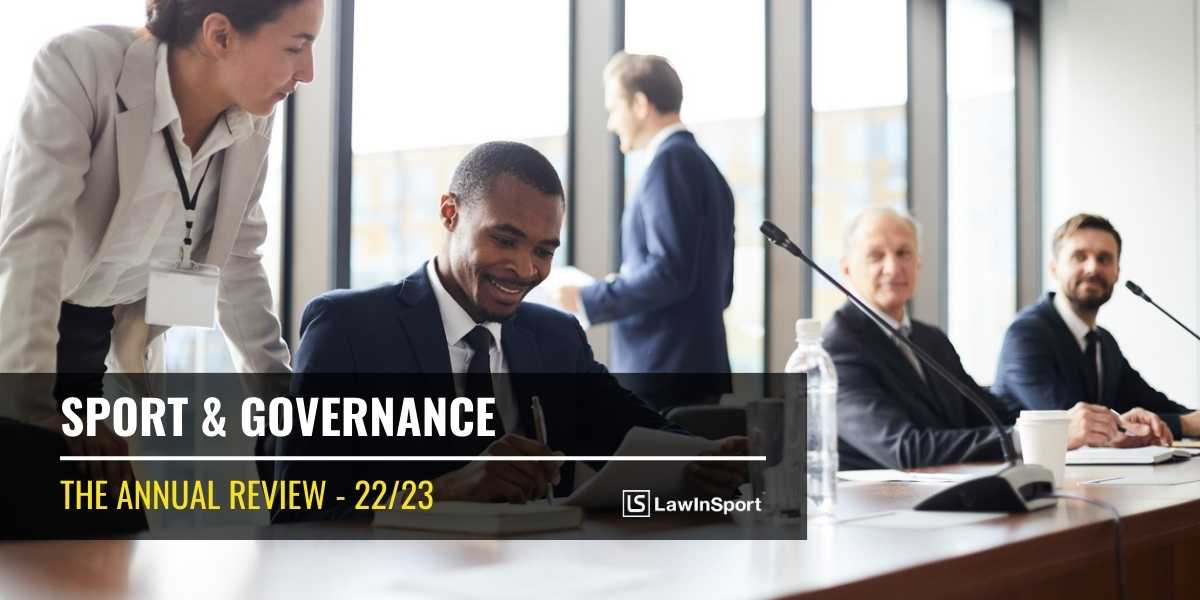

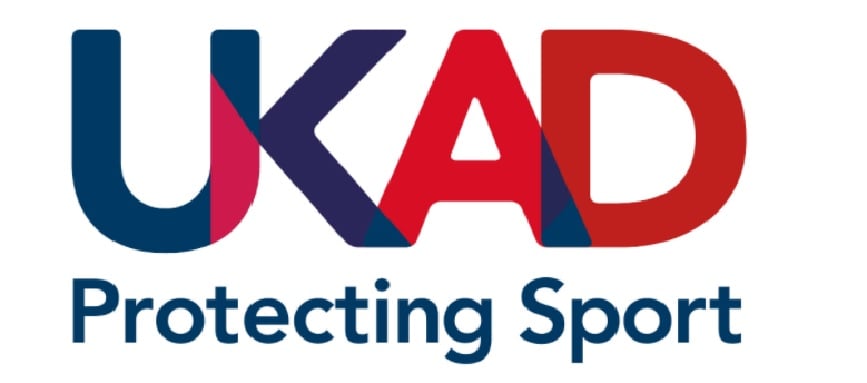
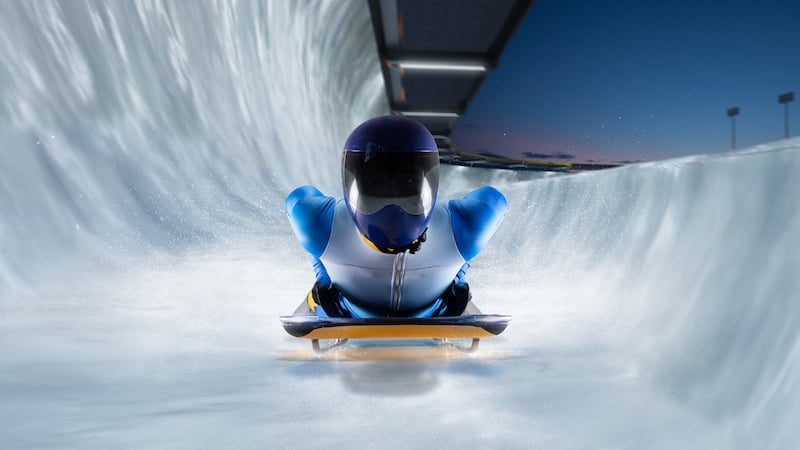
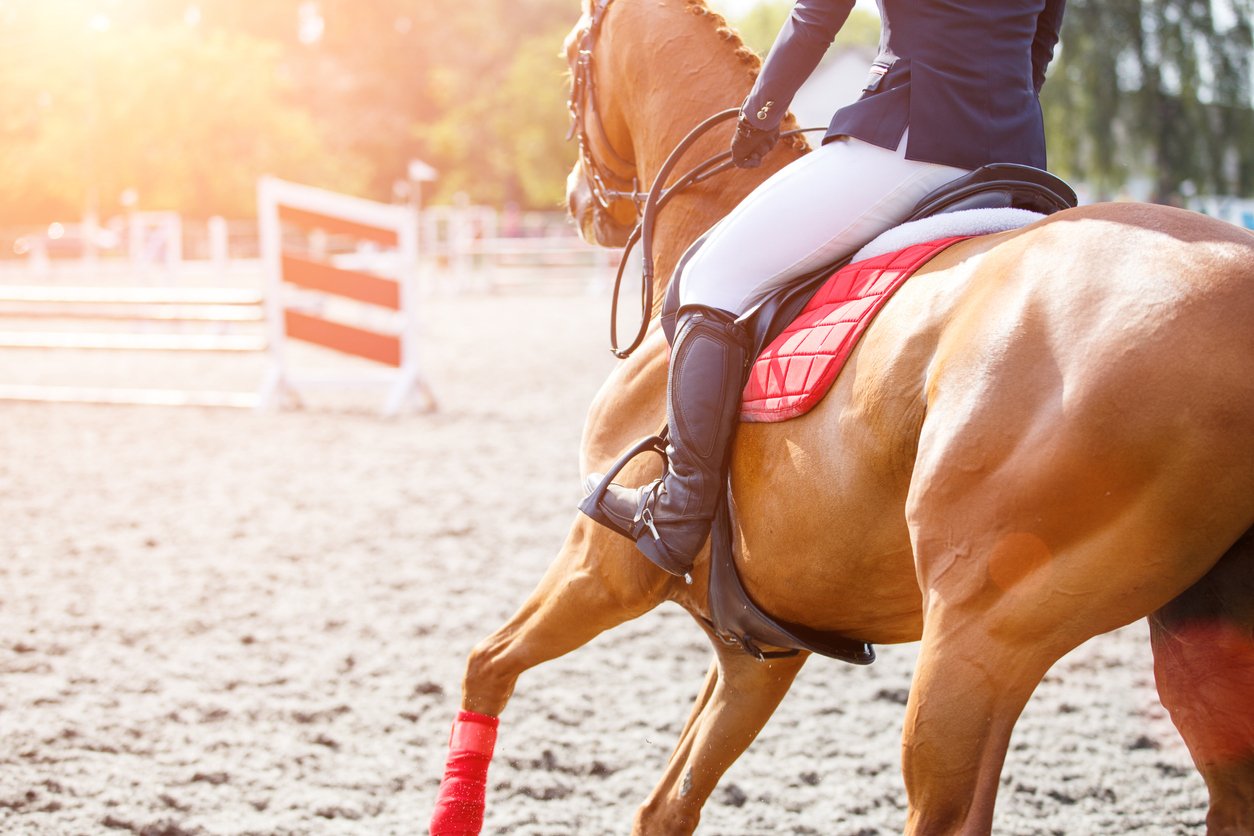
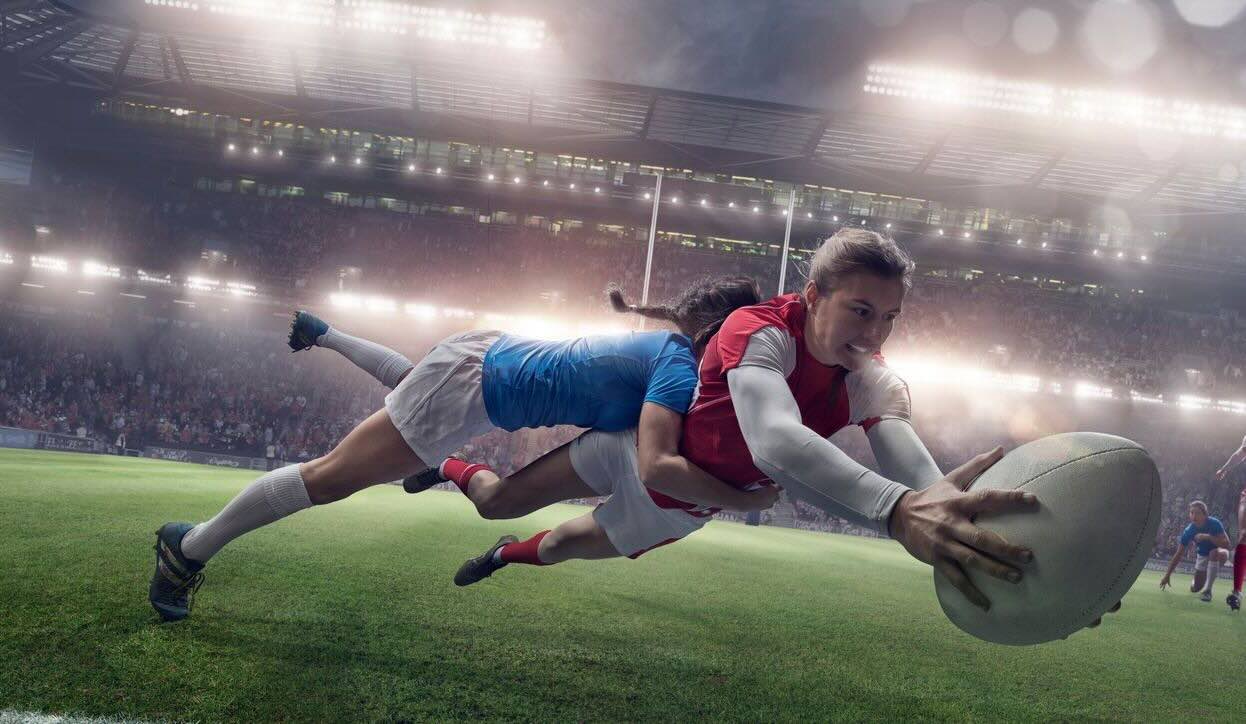

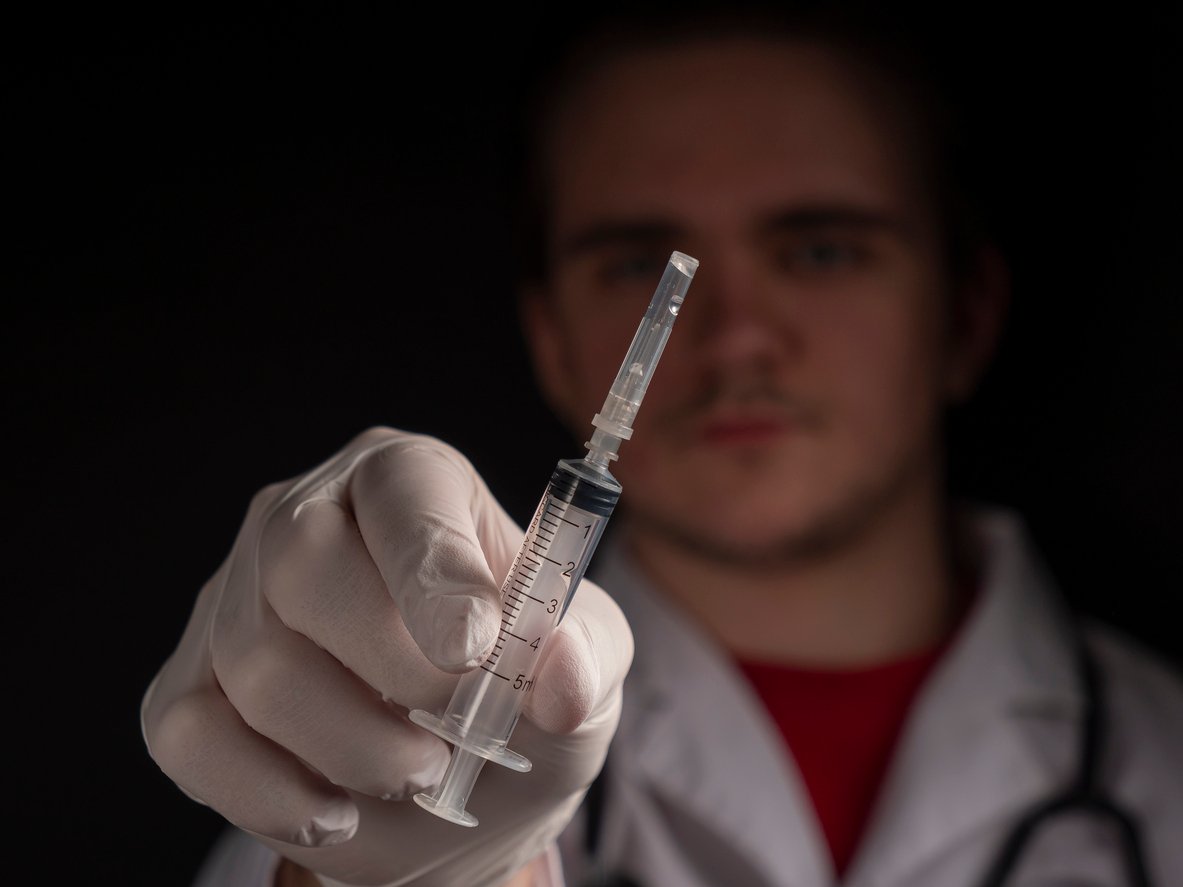
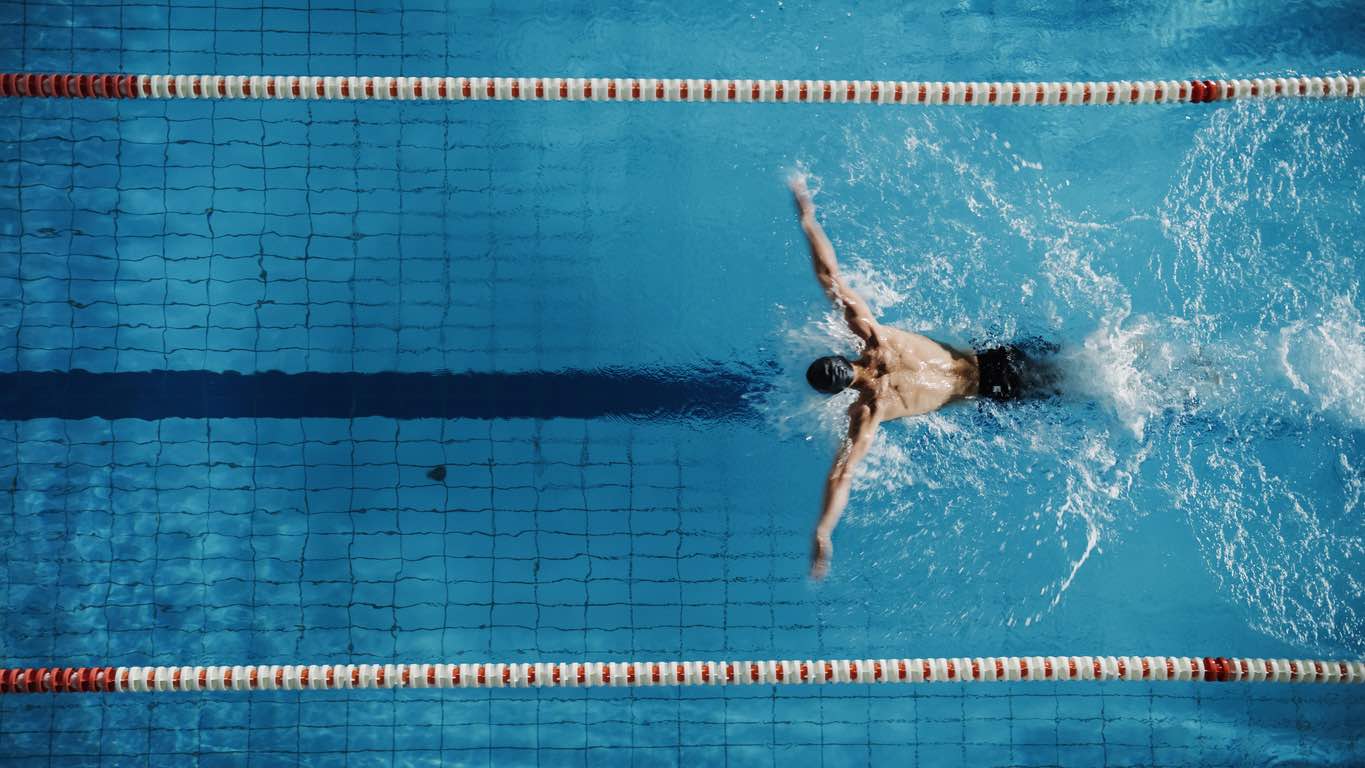
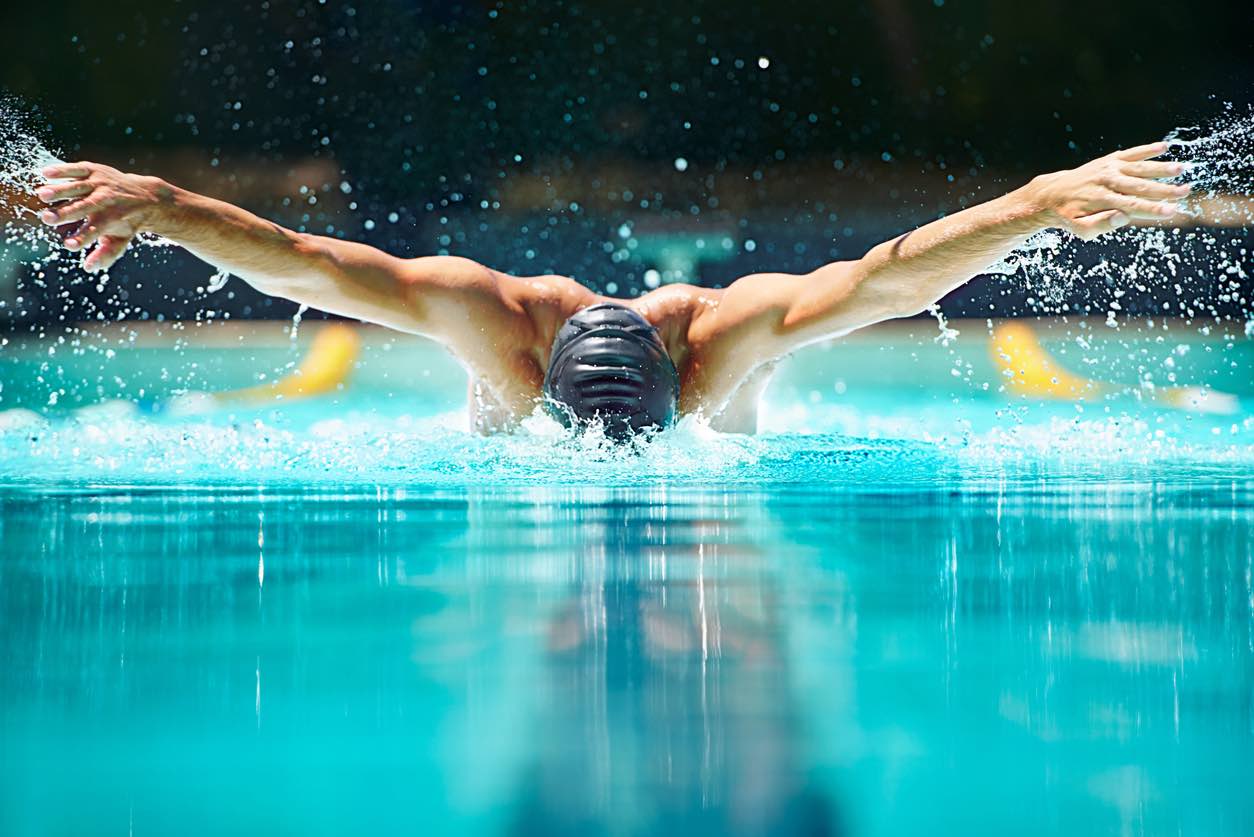

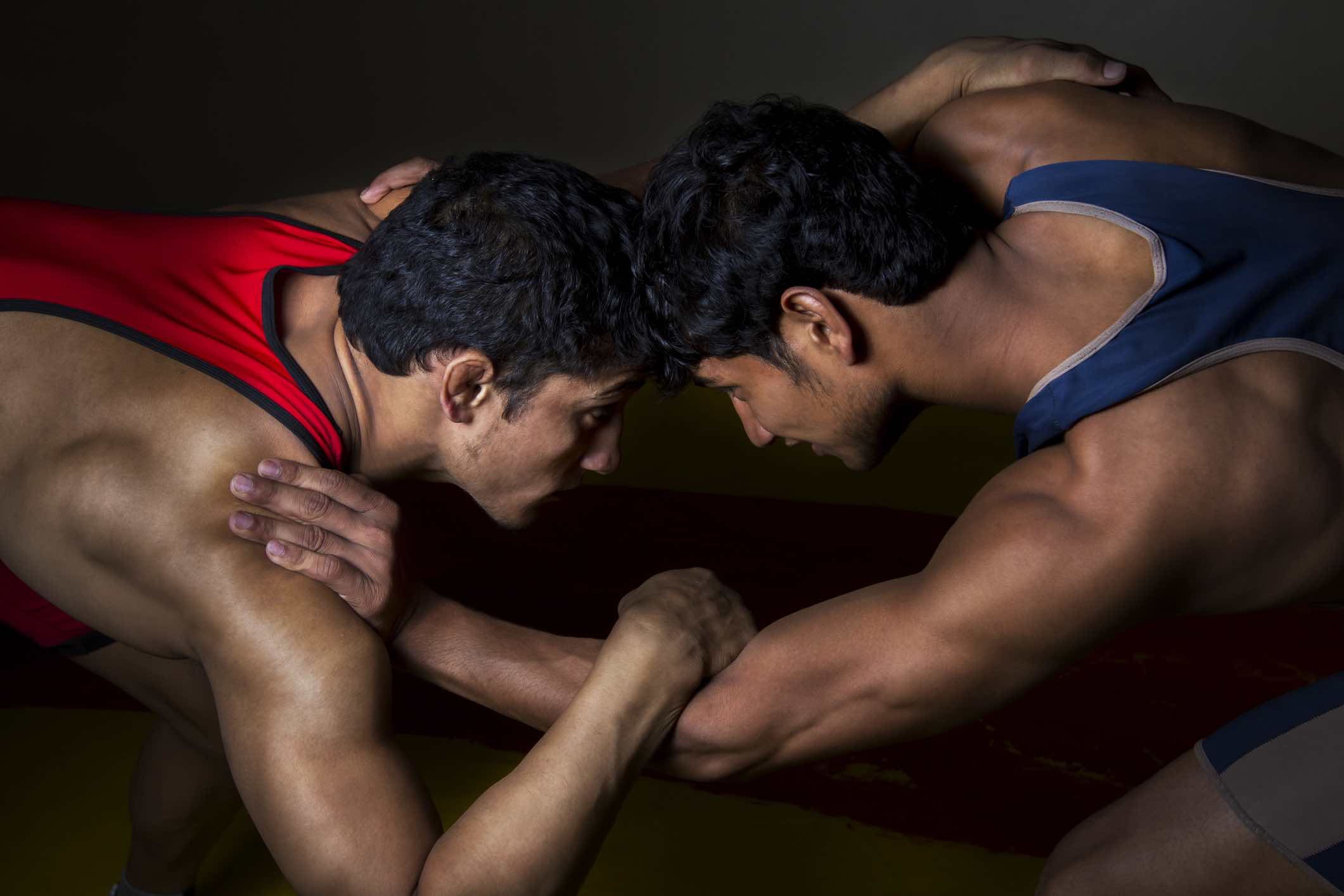
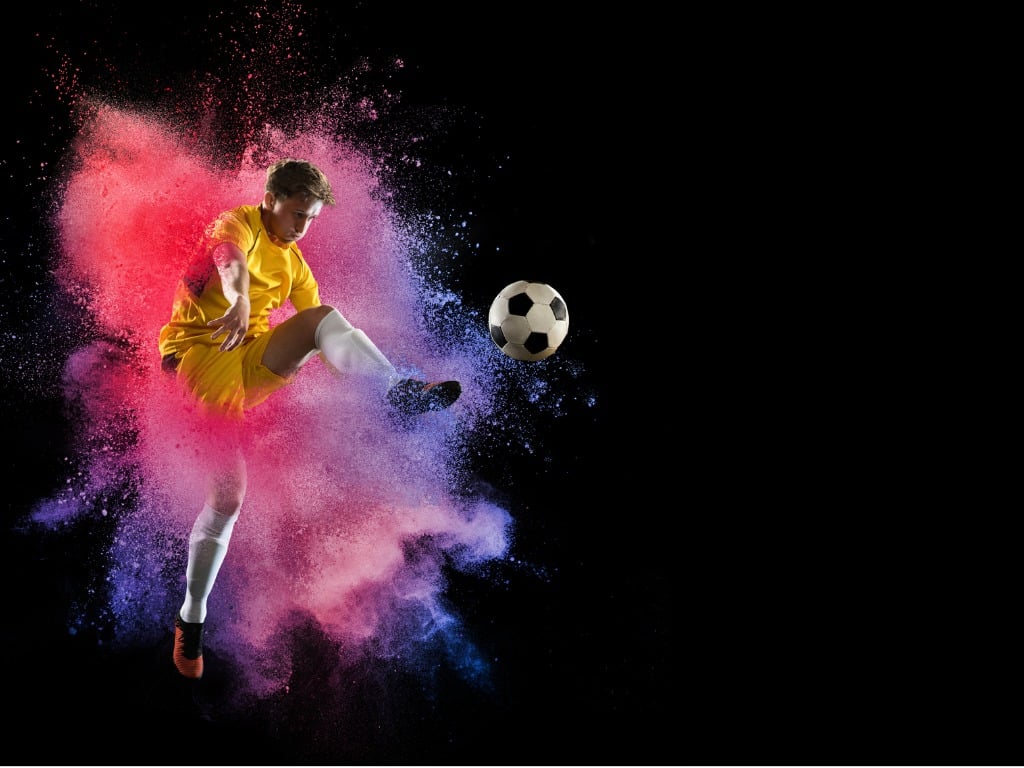
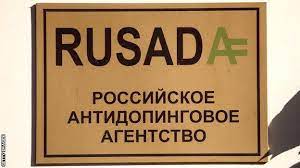
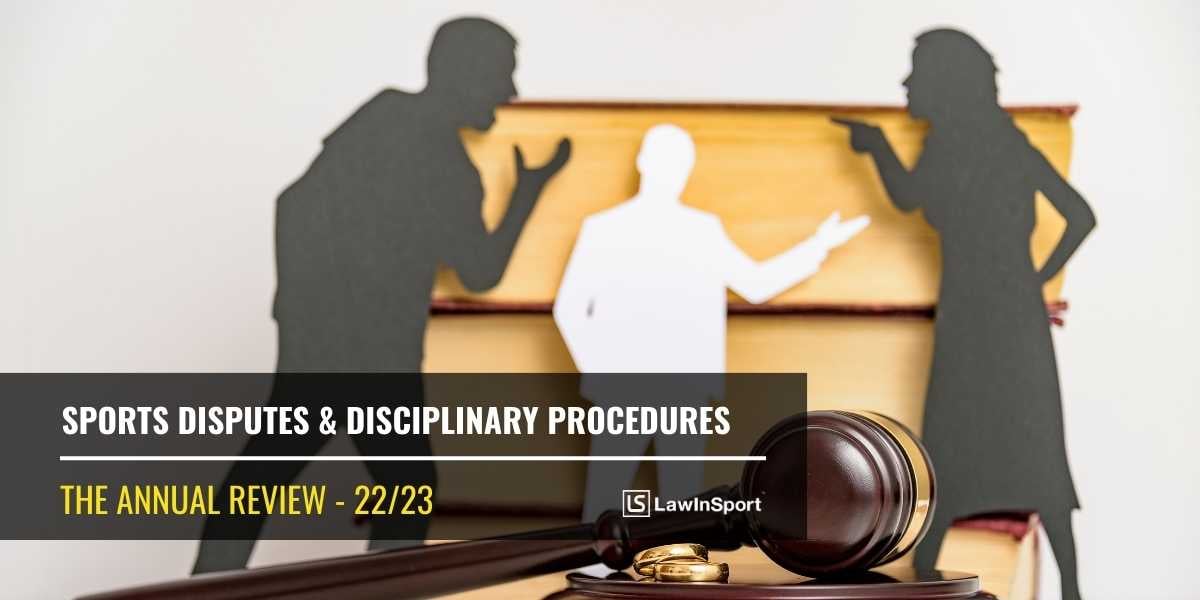
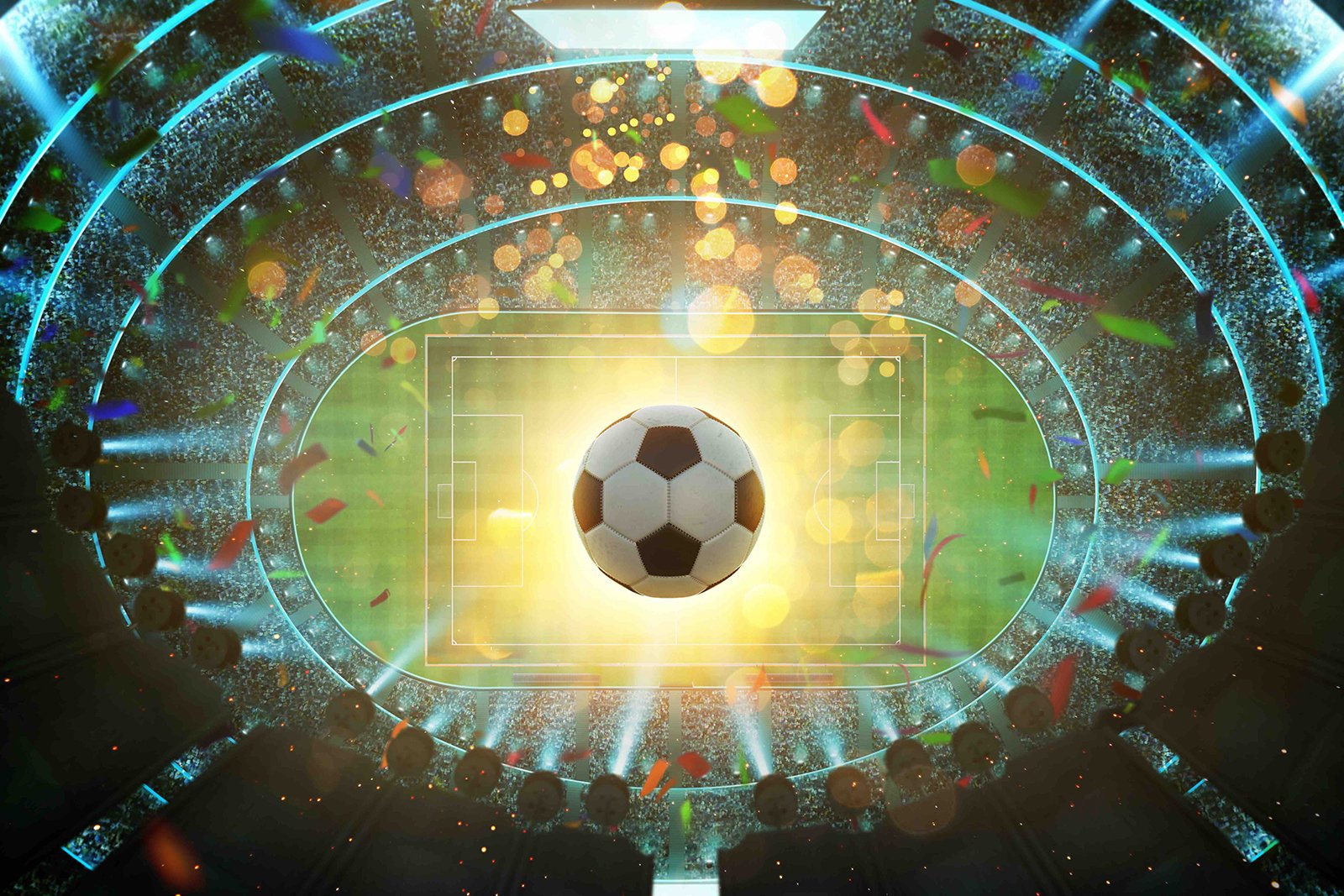

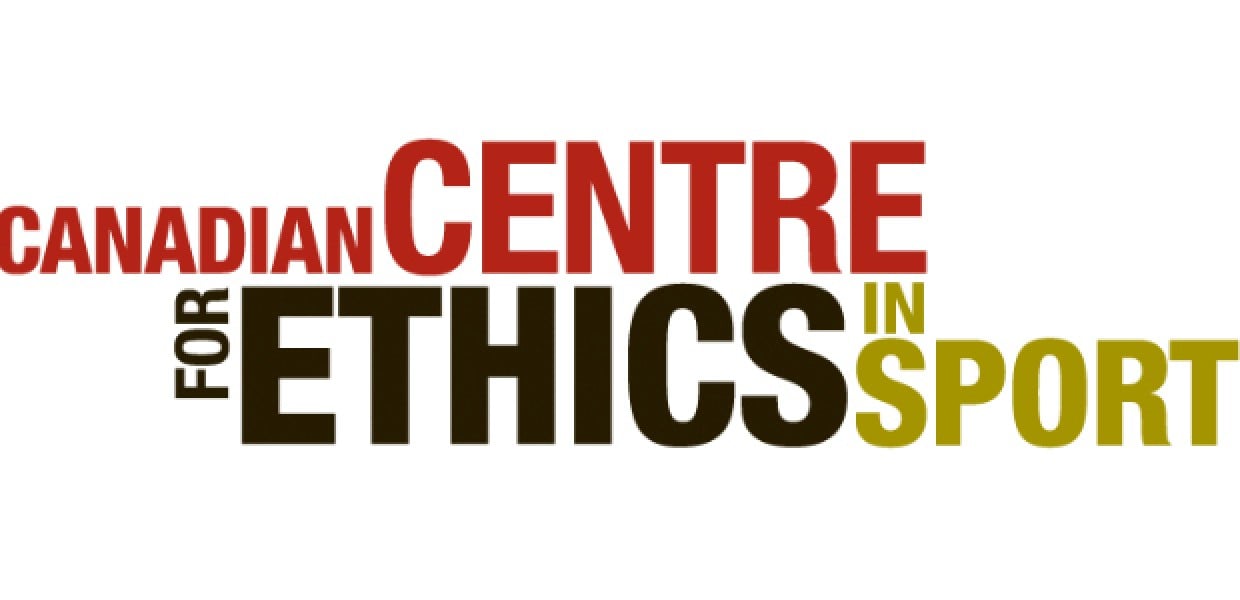
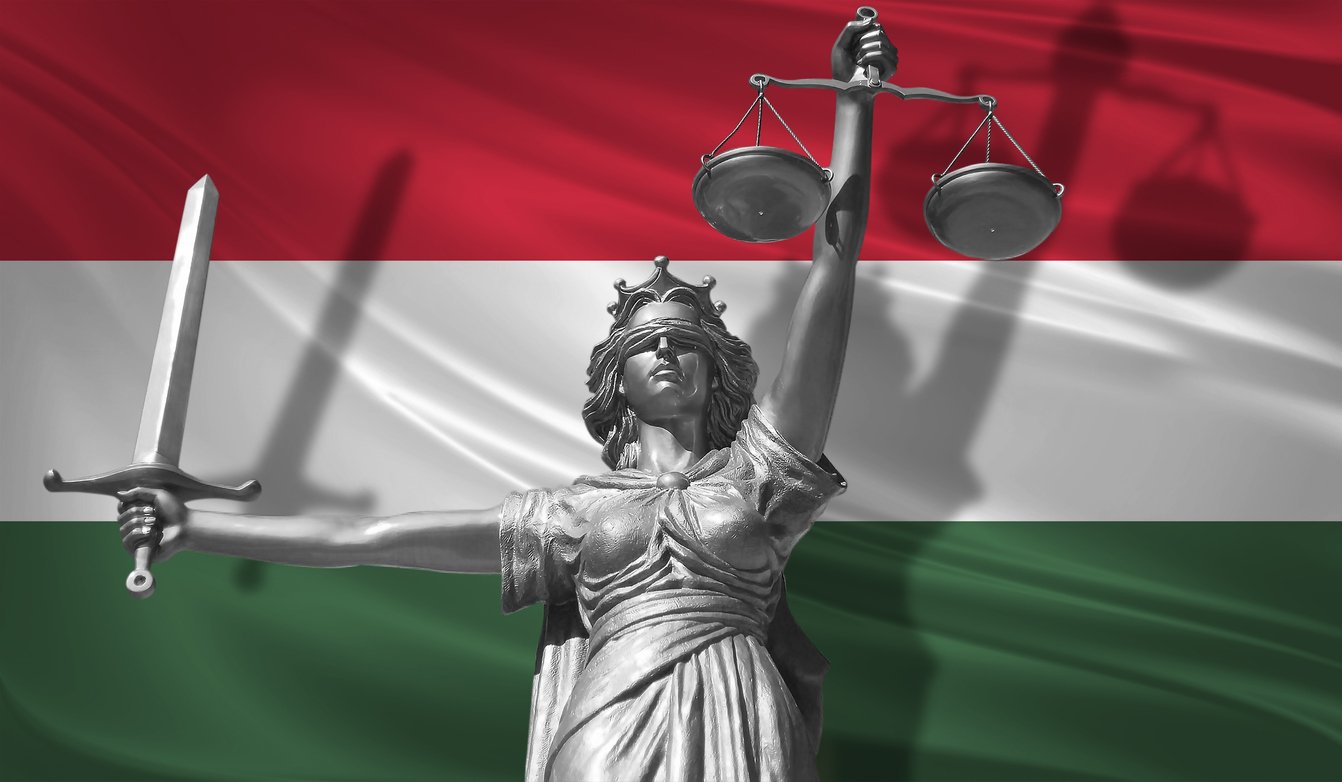
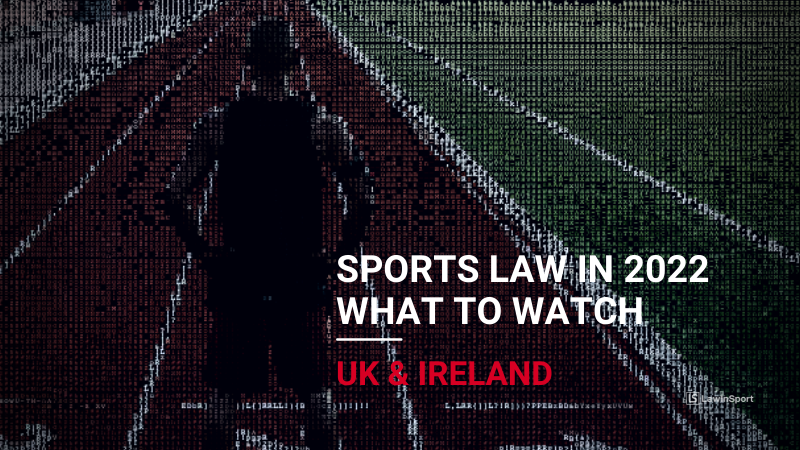
 Global Summit 2024
Global Summit 2024